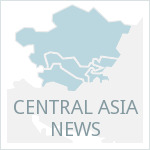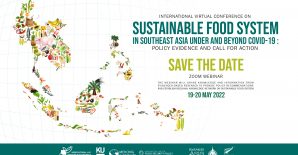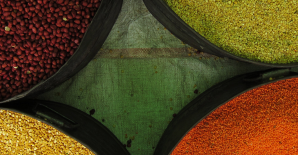News
Uzbekistan intends to export $1.5 billion worth of fruits and vegetables
Director-general of Uzagroexport Sultan Nazarov declared that Uzbekistan intends to export $1.5 billion worth of horticulture. No timeline for the figure was specified in the article, but Nazarov reported that Uzbekistan broke records in May by exporting 120,000 tons of products worth about $150 million. While most fruits and vegetable exports continue to go to traditional markets in Kazakhstan and Russia, Uzbek products are on the verge of also entering lucrative markets in East Asia, the Middle East, and the West. - AzerNews
Kazakhstan setting new grain export records
Kazakhstan enjoyed one of its largest grain harvests since 2011 last year despite intensifying competition from Russia. Export growth appears to be driven by barley, which may be allocated more land in 2018. Kazakh farmers are reducing land allocated to wheat as they switch to more profitable oil crops. Still, Kazakh wheat exports are expected to hit a six-year high this year as a result of increased demand from Uzbekistan, Tajikistan, and Turkey. - UkrAgroConsulting
In March 2018, Kazakhstan increased the exports of pulses
Kazakh exports of pulses in March totaled approximately 15,800 tons, an increase of almost 40 percent from February. Lentils were the main exported pulse, almost all of which was purchased by Turkish suppliers. Pea exports also saw increases in March, with the majority sent to Afghanistan. - The Financial
Researchers from the Tajik Academy of Agricultural Sciences plant potatoes in Bulunkul
Researchers from the Tajik Academy of Agricultural Sciences (TAAS) are working with local authorities to undertake an experiment growing potatoes and forage crops at high altitudes. The remote mountain village of Bulunkul in Tajikistan's Gorno-Badakhshan Autonomous Oblast will be the site of the 15-hectare experimental plot. The village's 62 households are largely engaged in animal husbandry, but TAAS researchers believe that its residents can also grow crops on more than 500 hectares. - Asia-Plus
Migrants transfer $550 million to Kyrgyzstan since beginning of 2018
Chairman of the National Bank of Kyrgyzstan Tolkunbek Abdygulov reported that the net inflow of remittances amounted to $550 million in the first four months of 2018, representing an increase of 11 percent from the same period last year. More than 90 percent of the remittances originated in Russia. The Asian Development Bank predicts a 20 percent increase in remittances for this year from 2017. - News Agency 24
Uzbekistan assailed by cataclysmic sand and salt storm
Parts of Uzbekistan and Turkmenistan are recovering from a powerful storm that meteorological authorities said spread alarming concentrations of contaminants in the air. Local environmentalists expressed concern for agriculture especially in light of the relatively dry spring. The areas affected are located near former parts of the Aral Sea, which is acknowledged to be the source of the dust and salt. - Eurasianet
Analysis & Related Information
In Uzbekistan, expect problems with the cotton crop this year
Cool and dry weather this spring bodes poorly for the Uzbek cotton crop this year. Land allocated for cotton had already been reduced to 1.7 million hectares (approximately 135,000 less than in 2017) in large part due to decisions to switch production to more profitable crops. This news was received at a meeting chaired by the Uzbek president, whose office is pledging to overhaul cotton procurement and input supply procedures. - UkrAgroConsult
Kazakhstan's returnees frustrated by cold shoulders
More than one million ethnic Kazakhs have taken advantage of opportunities to resettle in Kazakhstan since the early 1990s. The migrants, known locally as Oralman, settled from nearby countries such as China and Uzbekistan on invitation by the Kazakh government, which feared demographic collapse as a result of the mass emigration of its Slavic population following independence. The author of this feature describes some of the running tensions between the Oralmans and local Kazakhs, largely stemming from cultural differences and a perception that the migrants are receiving too much in public benefits. - EurasiaNet
Restoring life to the Aral Sea's dead zone
A project is underway to plant millions of trees in former parts of the Aral Sea in Uzbekistan. The exposed seabed has had major public health implications over the decades, as chemicals used in farming have been carried by the wind and is said to be responsible for stunted growth, reduced fertility, increased rates of cancer, and respiratory illnesses in the region. Forestry specialists believe that saxaul trees, shrub-like trees native to Central Asia, can hold up to 10 tons of surrounding soil to mitigate these problems. Saxaul trees are able to survive in dry and salty soil; specialists behind the project hope to cover the entire former seabed. This article is accompanied by a video feature. - BBC
Apparel brands take a closer look at sourcing after cotton ban
The recent U.S. Customs and Border Protection (CBP) ban on Turkmen cotton will force apparel companies to pay attention to the sourcing of their products, according to this analysis on Supply Chain Dive. According to one expert, textile factories may use blends of raw materials from various countries and it is often difficult for apparel brands to identify their source. For example, Turkmen cotton is exported to factories in Turkey, Pakistan, India, and China that assemble textile products for overseas clients. - Supply Chain Dive
Publications & Reports
Excerpts on the history of development of agricultural machinery in Uzbekistan
N. Abdullaeva, K. Sharipov (2018). Global Journal of Human-Social Science, 18(4).
Liberalization of exchange rate policies: international experiences and lessons for Uzbekistan
B. Islamov, N. Ziyadullaev, U. Ziyadullaev, D. Islamov (2018). Problemy rynochnoi ekonomiki, 2018(1), pp. 49-57.
Impact of water and energy problems on the economic development of Uzbekistan
E. Kuzmina (2018). The Handbook of Environmental Chemistry, book chapter. Springer: Berlin, Heidelberg.
The effect of geographical margins on cereal grain size variation: case study for highlands of Kyrgyzstan
G. Matuzeviciute et al. (2018). Journal of Archaeological Science: Reports, 20, 2018, pp. 400-410.
Exploiting a natural resource in a poor country: the good, the bad and the guly sides of the Kyrgyz Republic's gold mine
R. Pomfret (2018). Leibniz Institute for East and Southeast European Studies (IOS). IOS working paper no. 372.
Development initiatives and transboundary water politics in the Talas waterscape (Kyrgyzstan-Kazakhstan): towards the conflicting borderlands hydrosocial cycle
A. Zinzani (2018). Water, Technology and the Nation-State, book chapter. Routledge: London.
Events & Call for Papers
Annual Life in Kyrgyzstan Conference
Annual conference and call for papers. 17-18 October 2018 in Bishkek, Kyrgyzstan. The University of Central Asia's (UCA) Institute of Public Policy and Administration, International Security and Development Center (ISDC), and the Leibniz Institute of Vegetable and Ornamental Crops (IGZ) are organizing the fourth annual Life in Kyrgyzstan Conference. Organizers are accepting proposals for sessions and/or presentations of papers. Please click on the above link or contact likconference2018@gmail.com for additional details. Deadline for proposals is 30 June 2018.
"Agriculture Trade and Foreign Investments for Sustainable Regional Integration in Caucasus and Central Asia" Conference
6 – 7 September 2018 in Baku, Azerbaijan. Organized by Leibniz Institute of Agricultural Development in Transition Economics (IAMO) and Institute of Scientific Research on Economic Reforms (ISRER). The aim of this conference is to serve as a platform to discuss options for regional integration in the Caucasus and Central Asian countries and to explore opportunities for increasing agricultural exports from the region. Researchers, public officials, and private sector partners are invited to participate. The conference will be conducted in English and Russian. Please click on the above link for further details.
Archived issues of the news digest can be found on the Central Asia page under the ReSAKSS Asia website: http://resakss-asia.org/regions/central-asia. A link to the newsletter can be found under Blog Posts.
The articles included in this news digest have been generated from online sources. Any opinions stated herein are not representative of, or endorsed by, the International Food Policy Research Institute or its partners.



